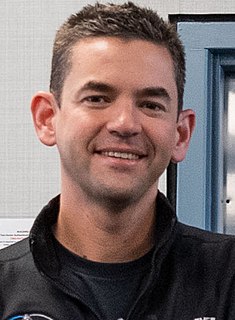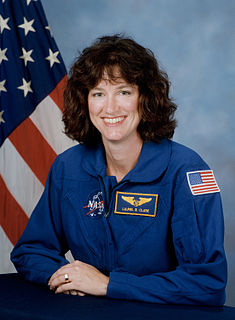A Quote by Jim Lovell
In space-flight terms, six landings on the moon back in the Sixties and Seventies doesn't mean much.
Related Quotes
Everyone who's been in space would, I'm sure, welcome the opportunity for a return to the exhilarating experiences there. For me, a flight in a shuttle, though most satisfying, would be anticlimactic after my flight to the moon. Plus, if I pursued a flight myself, people would think that was the reason I am trying to generate interest in public spaceflight. And that's not the purpose - I want to generate interest in long-range space exploration.
For the last several years and culminating in six months in orbit next year, I've been training for my third space flight. This one is almost in a category completely different than the previous two, specifically to live in on the space station for six months, to command a space ship and to fly a new rocket ship.
Nothing is more symptomatic of the enervation, of the decompression of the Western imagination, than our incapacity to respond to the landings on the Moon. Not a single great poem, picture, metaphor has come of this breathtaking act, of Prometheus' rescue of Icarus or of Phaeton in flight towards the stars.
I remember the moon landings, and Apollo was the paradigm by which all progress was measured at that time. And I knew that creating a true space-faring civilization was both possible and practical. What I failed to realize was that the effort would fail due to bureaucratic inertia and political apathy.
We were trying to do as much science as we could because that was the main purpose of the international space station. But without the shuttle to bring up heavy laboratory equipment and bring back samples, we were limited by what we could do, but I was proud that we actually accomplished more science that was planned for the flight. And I got a chance to do two Russian spacewalks on that flight, I had become an expert in U.S. spacewalks and using U.S. suits and techniques, and this was a chance to put on a Russian Orlan suit and do two construction space flights outside of the space station.
In the States, there has been, compared to the Sixties and Seventies, a huge retrenchment - not just in poetry - into the personal. A withdrawal from thinking in terms of social and collective values, needs and solutions. The consciousness-raising groups of the women's movement, for instance, becoming "support-groups" or therapy groups.






























